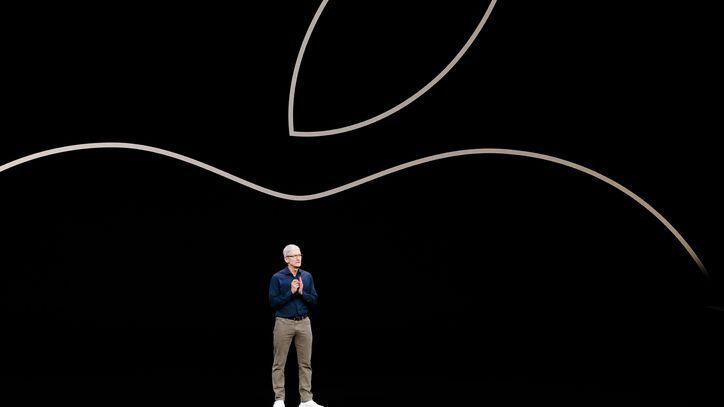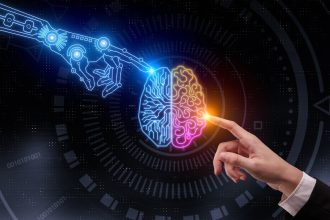
Apple is joining the artificial intelligence chatbot race. The company’s new Answers, Knowledge and Information (AKI) team is developing several ChatGPT-like products to meet the unprecedented demand for AI web search, according to Apple Insider Mark Gurman.
The AKI team, which contains several former Siri engineers, is apparently building an “answer engine” that can crawl the web and generate answers to general knowledge questions, Gurman reported on Bloomberg. Other projects include a standalone app version of the engine and infrastructure that will power AI search capabilities in future versions of Siri, Safari, and Spotlight.
Gurman has found job listings for the AKI team that refer to Siri, Spotlight, Safari, Messages, and Lookup as potential areas of work. Some of Apple’s openings also call for experience with search algorithms and engine development.
Rumours of the AKI division first came out in June, with Gurman saying that the chatbot has “already been plagued by some of the same problems that delayed the Siri overhaul.” While an AI-augmented Siri was announced in June 2024, rumours suggest it might not come until 2026, leading to a class-action lawsuit alleging that the company misled iPhone 16 buyers with promises of features that have yet to materialise.
Apple has been reluctant to join the AI race
Apple has had a slow start in AI. Back in May, sources claimed that Apple Intelligence “wasn’t even an idea” before ChatGPT launched in late 2022, and that Craig Federighi, the head of software engineering, was “reluctant to make large investments in AI” without a clear end goal.
Apple’s AI chief, John Giannandrea downplayed OpenAI and Google as competitive threats, believing customers were uninterested in AI assistants as they often opted to disable them. He has been removed from overseeing Siri, robotics, and product development.
When Apple Intelligence was launched in October 2024, its main features, such as Genmoji and Priority Notifications, felt rather outdated compared to the powerful multimodal capabilities of GPT-4o and agentic offerings of Gemini 2.0 Flash. A ChatGPT integration was added to Siri with iOS 18.2 the following month, allowing requests that can’t be handled on-device to be forwarded to OpenAI’s chatbot.
Unfortunately, this integration wasn’t overly impressive either, with Gurman saying that Siri still “remains frustratingly inconsistent at answering questions” and “too often, it simply punts users to a generic Google web search.”
Apple is reportedly planning to rebuild Siri from scratch using an LLM-based engine, potentially a third-party version from OpenAI or Anthropic, distancing the assistant from Apple Intelligence. Meanwhile, Google is allowing Gemini access to personal data for AI Mode in Search, enabling users to receive more relevant results.
Despite the numerous setbacks with Apple’s AI tools, the company’s top executives and internal AI team remained steadfast in their refusal to work on an in-house chatbot that could respond to search queries, according to Gurman, who argued that consumer interest is limited.
In addition, Apple has historically never attempted to compete with Google in web search, both because its product is so dominant and because it pays Apple $20 billion a year to remain Safari’s default search engine.
Apple can no longer bury its head in the sand
It seems Apple no longer has the luxury of choice. Regulators worldwide are looking more closely at the mutually beneficial deals between Apple and Google, and the US Department of Justice is expected to intervene to mandate changes that promote competition.
Additionally, Google’s longstanding dominance in web search is being challenged by a growing number of users who are turning to AI chatbots instead of traditional search engines.
In May, Apple’s head of services, Eddy Cue, revealed the company was considering partnering with OpenAI, Anthropic, or Perplexity to add AI to Safari’s search capabilities. Apple is increasingly embracing third‑party partnerships following repeated setbacks in developing its own foundation models. In June, it could only say its newest “Apple On-Device” model performed “comparably” to models from Google and Alibaba.
Hot job market for recruiting top AI talent
Top engineering talent today are more influenced by the most impressive models and salary offers than they are by legacy names. Meta has poached four of Apple’s AI researchers this month, according to Gurman, thanks to promises of $100 million signing bonuses and the ability to work on more effective technology.
Rumours suggest that Meta CEO Mark Zuckerberg secured Apple’s top AI executive, Ruoming Pang, for his new superintelligence team with a compensation package worth over $200 million. Microsoft also has been actively recruiting, reportedly poaching around two dozen staff from Google’s DeepMind AI arm to work on consumer-facing AI products like Copilot and Bing AI.
Apple patched a zero-day exploit through which attackers could execute code via Google Chrome.





